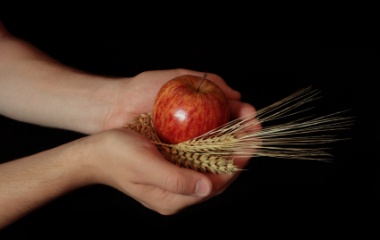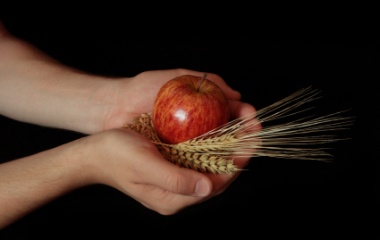In an age before electricity, having light at night was no simple matter. While various forms of lamps were in use, their effectiveness was limited.…

To Forget Is Human: Shabbat 12
Human nature is to be forgetful, even in the midst of doing something. This human frailty is what leads the Mishnah (11a) to rule that a tailor may…

Shabbat 10: In Your Court
While the prelude to the giving of the Torah is the establishment of a court system (see Shemot 18), it would seem that having to actually use the…

Shabbat 10a: Stop Praying Already
Two of our most fundamental mitzvoth are those of Tefillah, prayer and Talmud Torah, the study of Torah. Yet there has long been a…

Shabbat 6: The Hidden Scrolls
When discussing the transition of torah sheba’al peh from knowledge that was transmitted orally to knowledge that is primarily studied via texts, we…

Shabbat 3: Timely Questions
I had the privilege of learning in Rav Herschel Schachter’s shiur at Yeshiva University for four years, in the days before he was universally…

Shabbat 2: Waiting Outside
Much of Masechet Brachot deals with non-legal matters - extolling the importance of prayers and blessings and recording many stories involving our…

Brachot 61: For a Worthy Cause
The story of the martyrdom of Rabbi Akiva is well known. Defying the orders of the Roman government not to engage in Torah study, Rabbi Akiva…
Brachot 59: What a Blessing
One of the most well known blessings is that of dayan haemet, the blessing said upon the death of an immediate relative accepting G-d as the…

Brachot 55: Turning Dreams into Reality
The Talmud spends quite a number of pages discussing dreams. Taking their cue from the Bible itself, they put great stock in the significance of our…

Brachot 50: Gratitude
“From the blessings of man, we see if he is a scholar or not” (Brachot 50a). How, and more importantly, whom one blesses tells us much…

Brachot 47b: We Are All Am Ha'aratzim
The term am ha'aretz has come to mean an ignorant Jew, and is generally used in a pejorative manner. However, in Talmudic literature, an ignorant…

Brachot 43b: A Shameful Smell
A common feature of Talmudic editing is to group together a series of statements made by the same person. Generally, it is that person making a…

Brachot 43: Love of Zion
We human beings are naturally biased. Products of our environment, we are influenced by our cultural milieu, by our background, our life experiences…

Brachot 40: Getting It Wrong!
A striking feature of Talmud study is how it seamlessly moves from subject to subject; and how, almost out of the blue, one finds oneself discussing…
Brachot 39: Eat First, Ask Later
Jewish law prescribes not only that we make a blessing on food, but that we do so in the correct sequence. Thus, to cite a very basic example, we…

Brachot 38b: Practice, Practice, Practice!
As the Talmud is, at its core, an oral tradition—with the words before us a summary of “classroom”” discussion—it is…

Brachot 35: No, Thank You!
The opening Mishnah of the sixth chapter of Brachot discusses the various blessings one makes on different types of food. The Talmud attempts, but is…

